
by Mia Barnes
 Skin care has become so much more popular in recent years, and for good reason! Skin care is about so much more than looking beautiful — although it can certainly do that too. Caring for your skin is about caring for the inside of your body as well as the outside, just like any other health and wellness routine.
Skin care has become so much more popular in recent years, and for good reason! Skin care is about so much more than looking beautiful — although it can certainly do that too. Caring for your skin is about caring for the inside of your body as well as the outside, just like any other health and wellness routine.
There are so many ways that you can take care of your skin, and just the same, there are plenty of bad habits that might be impacting your skin. While of course everybody is different, there are a few universal skin care tips that are worth trying out no matter who you are. If you’re curious about the kinds of habits that can affect your skin, here are just a few of them.
Not Drinking Enough Water
Staying hydrated is one of the most important ways to keep your skin healthy, and therefore not drinking enough water can have its consequences on your skin. Whether it comes as a result of dehydration or drinking sugary sodas and coffees, lacking water can contribute to dryness and breakouts.
Eating Processed Food
Similar to sugary drinks, processed foods filled with artificial sweeteners, processed sugar, white flours and complex fats can cause breakouts, excess sebum and oil that you’re likely in the market to avoid. Of course, everything is okay in moderation, but it’s best to keep processed food to a minimum.
Using Physical Exfoliators
This is a bad habit that can often be in good faith — while using scrubs, brushes and loofahs can sometimes feel good in the moment, it can actually cause abrasion and break down the moisture barrier that your skin needs protection.
Extra Hot Showers
Super hot showers, much like physical exfoliators, can feel good in the moment, but they are often much too harsh, especially if you have sensitive skin. Instead, try to take warm showers so you can relax and take care of your face.
Going to Sleep In Your Makeup
It can be tempting to crash at the end of the day without doing your evening skin care routine — especially if you’re extra tired. But going to sleep in your makeup is actually a bad habit that can cause breakouts, irritation and excess sebum and oil. Try to at least cleanse with micellar water before you hit the hay.
Drinking Alcohol
Alcohol is another habit that can affect your skin. Specifically, if you struggle with rosacea, hyperpigmentation, redness or dryness, drinking regularly can often trigger those skin issues. Try cutting back on alcohol or even going completely sober to see how your skin reacts.
Changing Products too Frequently
It can be fun to change up your skin care routine whenever you catch wind of a fun new product you’re itching to try — but let’s not forget that skin care routines are important for a reason. When you find products that work for your skin, you should keep them in your rotation.
Smoking Cigarettes
Smoking cigarettes is bad for your health, but it’s also bad for your complexion. If you smoke cigarettes, try to cut back or quit, as they can cause premature aging, spots, hyperpigmentation and breakouts.
Skipping the SPF
Speaking of premature aging and spots, skipping out on sunscreen is one of the most common bad skin habits. Make sure that even during the colder months you keep applying an SPF of at least 30 before you leave the house in the morning — you’ll thank yourself in a few years.
Popping and Picking
Although pimple popping videos can sometimes be satisfying to watch and even satisfying to reenact, it can actually be a very bad idea to pop and pick when you have breakouts. Not only can it get bacteria underneath the surface of your skin, but it can also lead to scarring and spots.
Bad Skin Habits to Kick
Taking care of your skin is truly about going from the inside out. From the food that you eat to the way that you hydrate yourself, and even the temperature of your showers, there are so many places that you can improve your habits in order to take better care of your skin. Do you have a tendency towards any of these habits?
Cover photo by Shiny Diamond from Pexels
Interior photo by Maria Orlova from Pexels






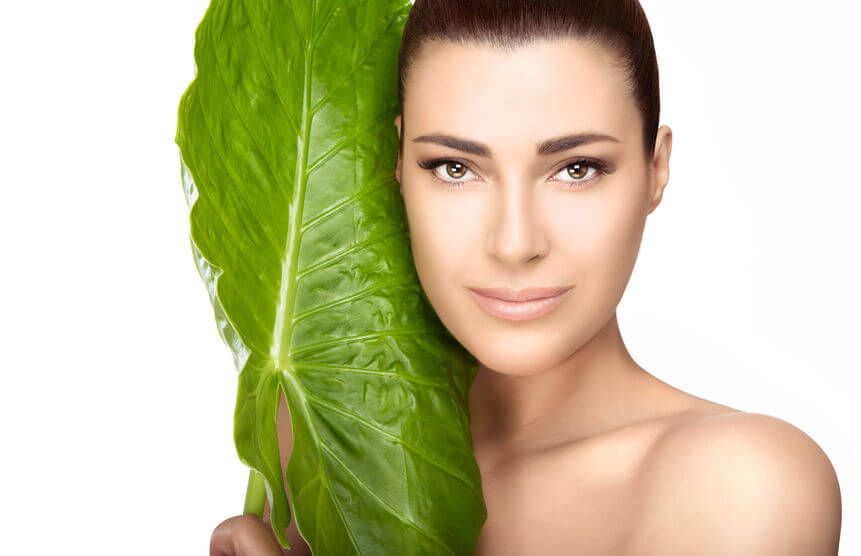
by Mia Barnes
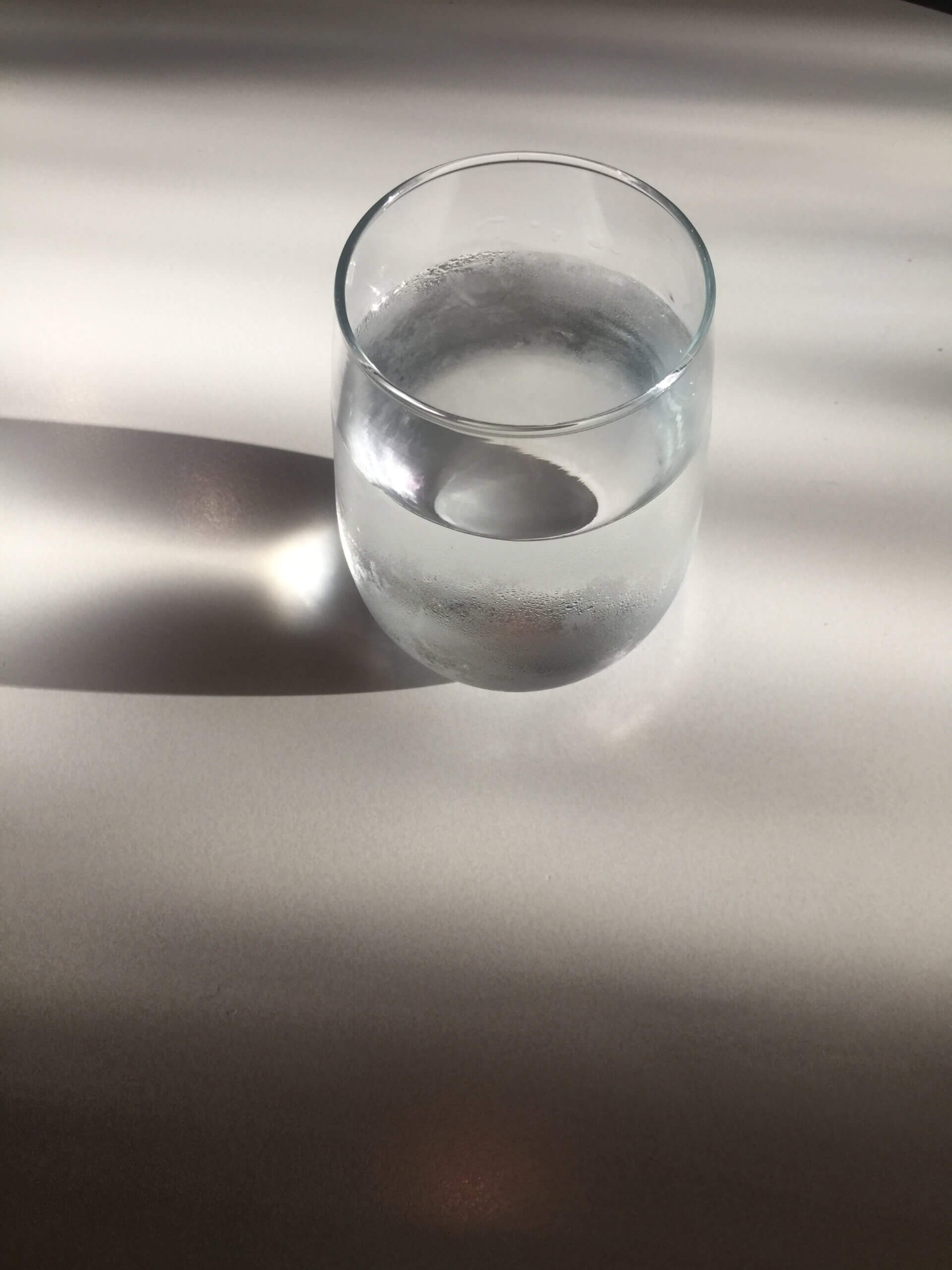 Skincare is all the rage right now, and whether you’re brand new to caring for your skin or you’ve had a routine for quite some time, there are so many ways to care for your skin, even beyond the products you use on your face. Namely, the food you eat and the fuel you put into your body can impact your skin’s health and appearance. While, of course, everyone is different and each person’s skin has unique needs, there are certain foods that can brighten, clear up and bring some bounce into your skin.
Skincare is all the rage right now, and whether you’re brand new to caring for your skin or you’ve had a routine for quite some time, there are so many ways to care for your skin, even beyond the products you use on your face. Namely, the food you eat and the fuel you put into your body can impact your skin’s health and appearance. While, of course, everyone is different and each person’s skin has unique needs, there are certain foods that can brighten, clear up and bring some bounce into your skin.
Self care is highly important, and taking care of your face and body is a part of the act of self care. If you’re thinking about which foods will be best for you to try out, it’s all a matter of your body and how your system reacts. It might take a bit of time to figure out the very best foods for you, especially if you have unique skin concerns and change up your routine frequently. But regardless of your skincare journey, these nine foods each have their own way to help you glow to the heavens. Here are just a few of the foods you can try out for better skin.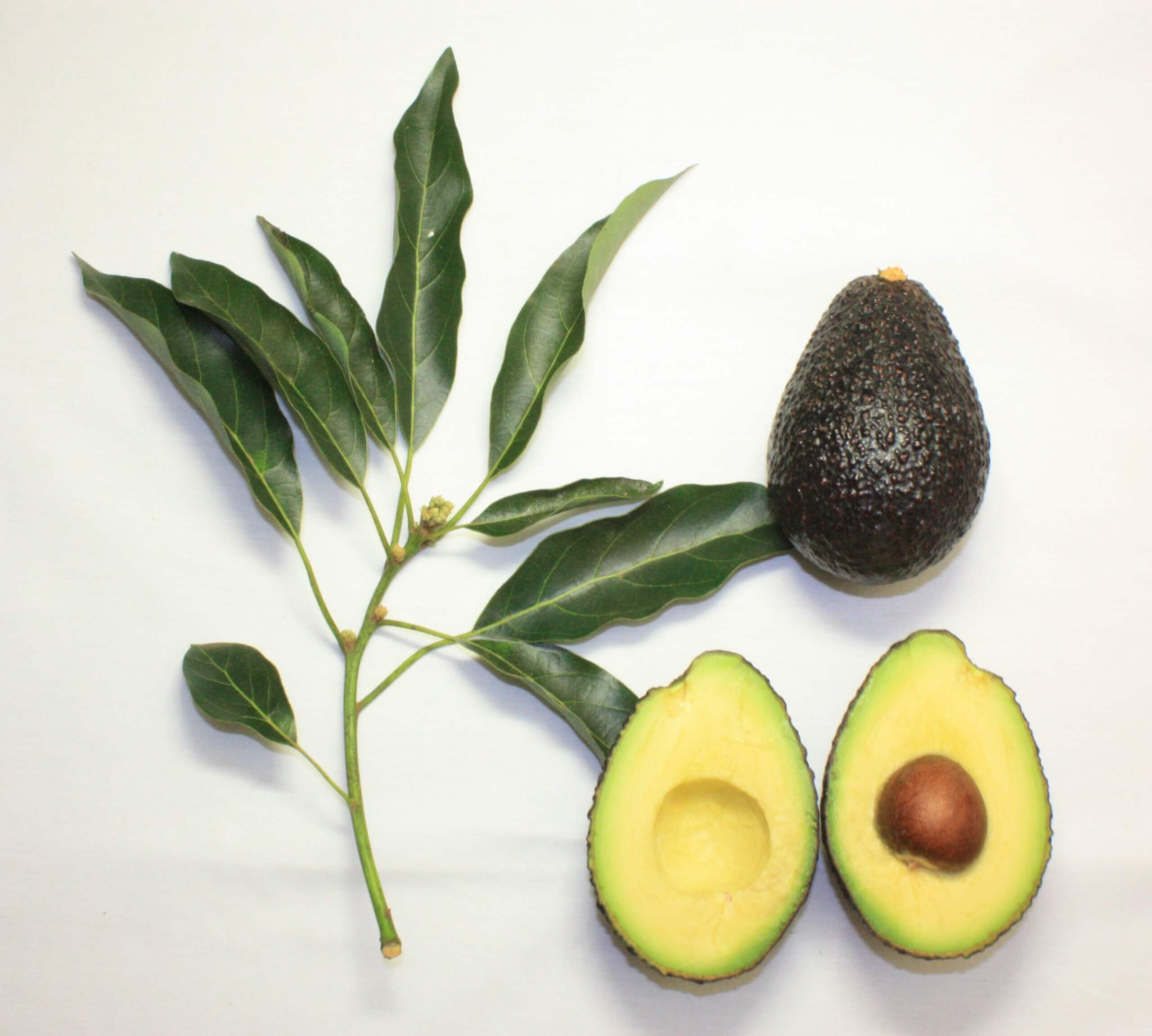
Water
Okay, technically this one isn’t a food, but it must be said. Making sure you drink enough water on a daily basis is one of the easiest and most effective ways to care for your skin through your diet. While drinking water alone won’t clear up acne or give you a dewy glow, the hydration can increase elasticity and moisture so you can heal faster and have more even skin.
Avocados
Avocados are a great source of healthy fats and vitamin E, which can be great for skin elasticity, moisture and clarity — not to mention the anti-aging properties. Many people put avocado and avocado oil directly in skincare products, but eating it can also lead to benefits.
Bell Peppers
Specifically, red and yellow bell peppers can be fantastic for skin elasticity and anti-aging, as well as combating dryness. They come with lots of beta carotene, which converts into vitamin A within the body. They’re also full of vitamin C, which can help your body process collagen.
Seafood
Seafood and fish are great sources of omega-3 fatty acids, which help with skin elasticity and healing. Not only can this offer hydration and anti-aging properties, but eating fish can even help protect against UV rays from the sun! Of course, you should always wear an SPF when going outside during the day, but a little extra protection can never hurt.
Green Tea
Green tea can help protect your skin from damage and aging. Similar to fish, the antioxidants in green tea can help protect against sun damage, and the catechin compounds can help with elasticity and clarity of the skin. Just make sure to avoid drinking it with milk, which can cause inflammation and lower the beneficial effects of the tea.
Leafy Greens
Leafy green vegetables like spinach, kale and other lettuces can be great sources of beta carotene, which can help repair damaged skin and protect skin by converting into vitamin A within the body. They’re also full of antioxidants and hydration.
Berries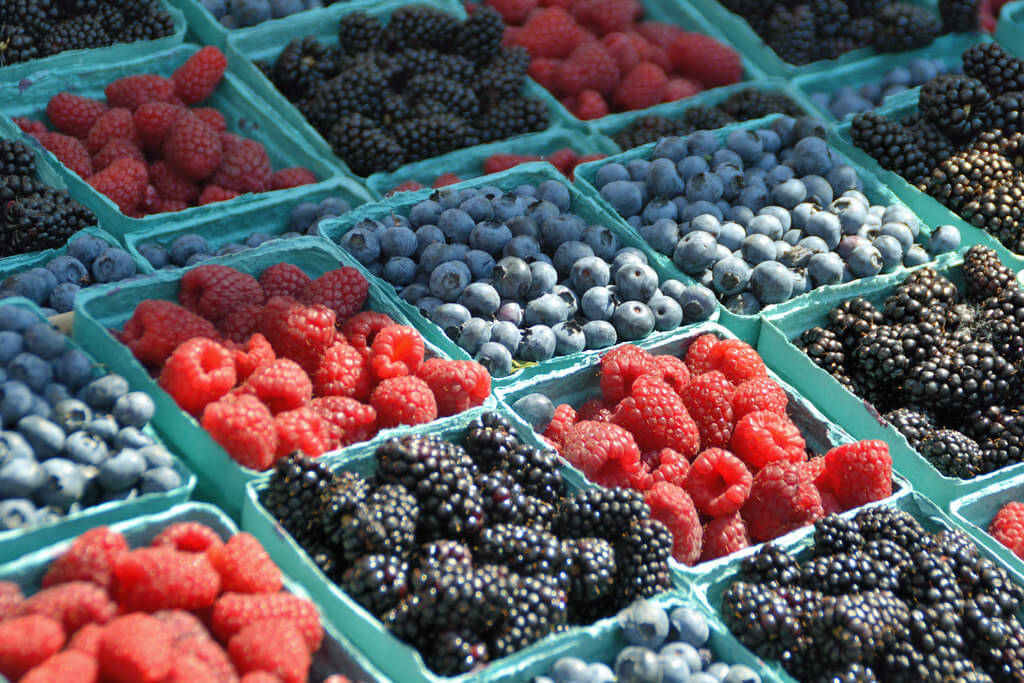
Speaking of antioxidants, berries like blueberries, raspberries and strawberries can be great for protecting your skin and offering nutrients. Blueberries can be particularly beneficial for people with dry skin, sensitive skin and redness, as they’re vascular constrictors, which work to combat those symptoms.
Tomatoes
While some people like to use tomatoes and tomato extract directly on their faces, eating tomatoes can also give you amazing benefits for your skin. Specifically, they can help to control oiliness and provide anti-aging benefits.
Oranges
Oranges are high in vitamin C, which is exactly what you should be looking to add to your diet if you want to reduce wrinkles and aging — especially if you tend to have dry or combination skin. While recent skincare developments have seen an increase in direct-to-face vitamin C products like serums and face washes, getting vitamin C straight from the source is still one of the best ways to go. Other citrus fruits and juices can also be a great way to get your vitamin C in.
Foods to Feed Your Skin
Taking care of your skin is just as important as taking care of any other part of your being — and when it’s so intertwined with eating a healthy diet, why not take the plunge? While everybody has their own skin needs and sensitivities, you can find the very best foods for your face. Do you have a food you already love to keep your skin glowing?







 Skin care has become so much more popular in recent years, and for good reason! Skin care is about so much more than looking beautiful — although it can certainly do that too. Caring for your skin is about caring for the inside of your body as well as the outside, just like any other health and wellness routine.
Skin care has become so much more popular in recent years, and for good reason! Skin care is about so much more than looking beautiful — although it can certainly do that too. Caring for your skin is about caring for the inside of your body as well as the outside, just like any other health and wellness routine.
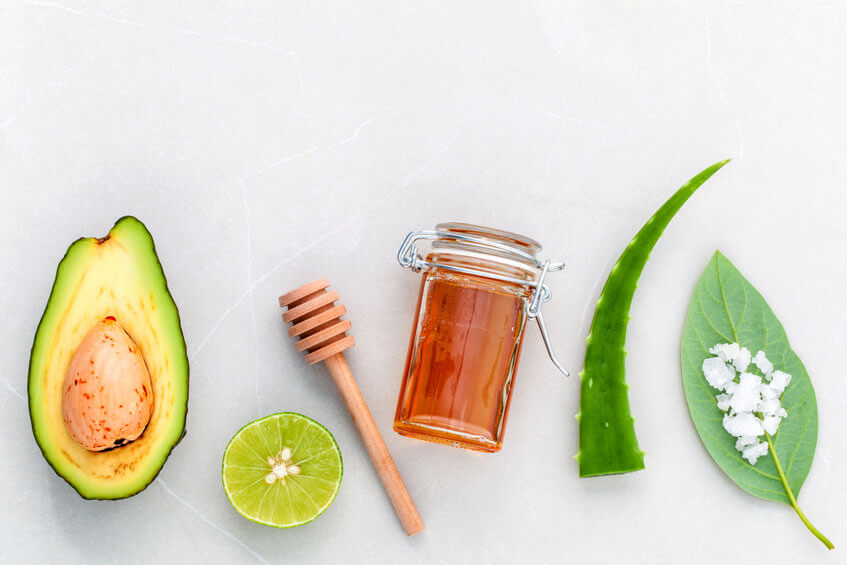

 Skincare is all the rage right now, and whether you’re brand new to caring for your skin or you’ve had a routine for quite some time, there are so many ways to care for your skin, even beyond the products you use on your face. Namely, the food you eat and the fuel you put into your body can impact your skin’s health and appearance. While, of course, everyone is different and each person’s skin has unique needs, there are certain foods that can brighten, clear up and bring some bounce into your skin.
Skincare is all the rage right now, and whether you’re brand new to caring for your skin or you’ve had a routine for quite some time, there are so many ways to care for your skin, even beyond the products you use on your face. Namely, the food you eat and the fuel you put into your body can impact your skin’s health and appearance. While, of course, everyone is different and each person’s skin has unique needs, there are certain foods that can brighten, clear up and bring some bounce into your skin.
